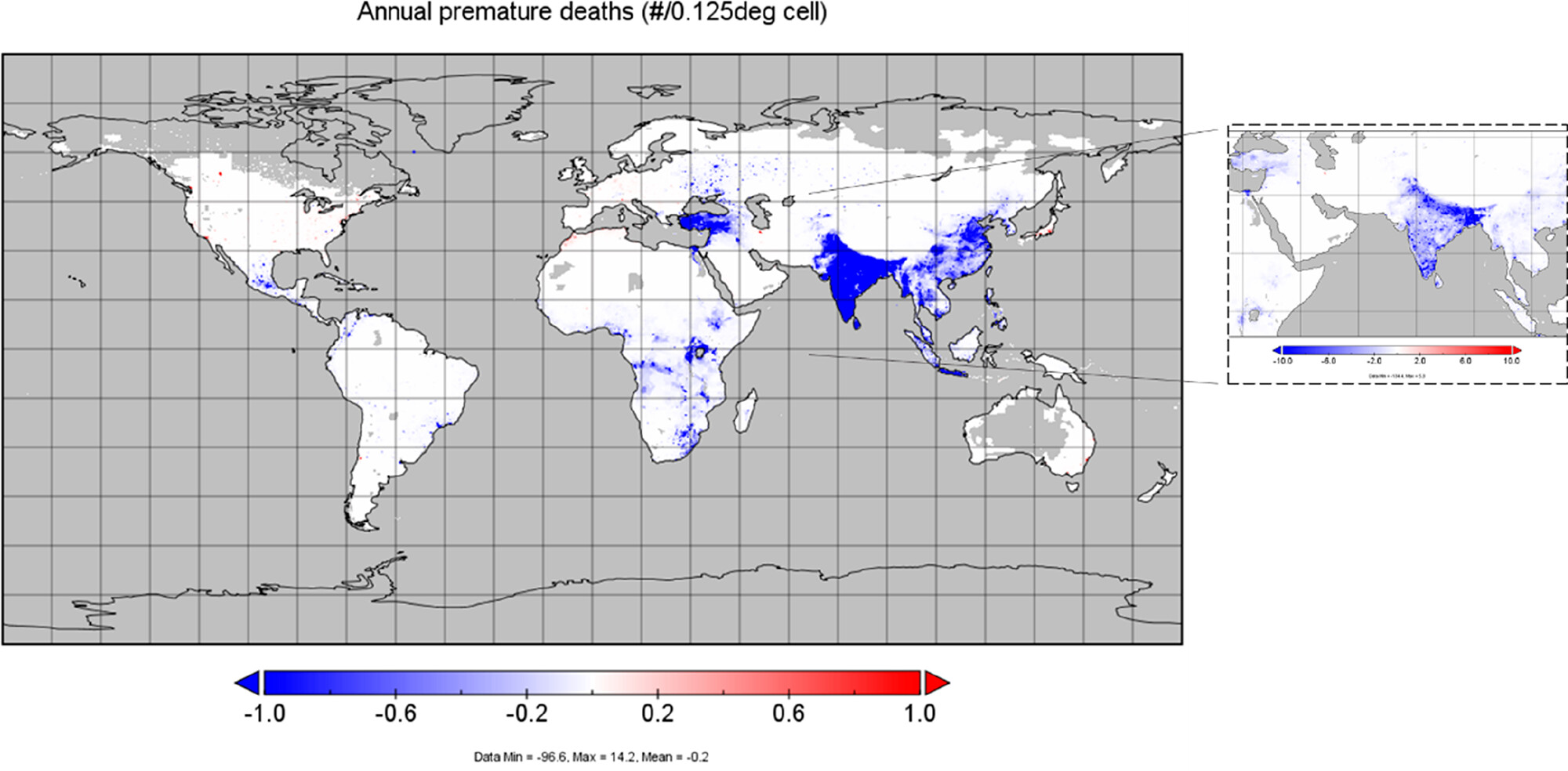Current National Determined Contributions require strengthening to achieve the 2-degree target set in the Paris Agreement. Here, Wenying Chen and Huan Wang of Institute of Energy, Environment and Economy, Tsinghua University,as well as collaborators from Potsdam Institute for Climate Impact Research published a research article titled The Double Dividend of International Cooperation for Climate Mitigation Cost Effectiveness and Public Health Cobenefits in Environmental Science & Technology. They contrast two mitigation effort strengthening ideas: the “burden-sharing” principle, which requires each region to meet the mitigation goal through domestic mitigation with no international cooperation, and the cooperation focused “cost effective conditional-enhancing” principle, which combines domestic mitigation with carbon trading and low-carbon investment transfer.
They build a soft-linkage for three models: the burden-sharing analysis model generates regional CO2 emission results under the 2-degree carbon budget; the energy system optimization model generates the cost-optimal energy and technology mix for each region under given regional emissions; and with the energy and technology mix, the air quality and public health impact model generates the air pollution concentration and the corresponding premature death results. The connection parameter between the burden-sharing analysis model and the energy system optimization model is regional CO2 emission results; the connection parameter between the energy system optimization model and the air quality and public health impact model is the regional sectoral energy consumption results.
By applying a burden-sharing model covering several equity principles, they analyze the 2030 mitigation burden for each region, then the energy system model generates the results for the carbon trade and the investment transfer for the conditional-enhancing plan, and an air pollution cobenefit model is used to analyze the cobenefit on air quality and public health.
It shows that the conditional-enhancing plan leads to an international carbon trading volume of 339.2 billion USD per year and reduces the marginal mitigation cost of the quota-purchase regions by 25%–32%. Furthermore, the international cooperation incentivizes a faster and deeper decarbonization in developing and emerging regions, raising the air pollution health cobenefits by 18% to 731,000 avoided premature deaths annually compared to the “burden-sharing” principle, amounting to a reduction in the life value loss of 131 billion dollars per year.

Huan Wang, Wenying Chen*, Sebastian Rauner, Christoph Bertram, Gunnar Luderer, and Elmar Kriegler.The Double Dividend of International Cooperation for Climate Mitigation Cost Effectiveness and Public Health Cobenefits.Environmental Science & Technology,2023,https://doi.org/10.1021/acs.est.2c08326